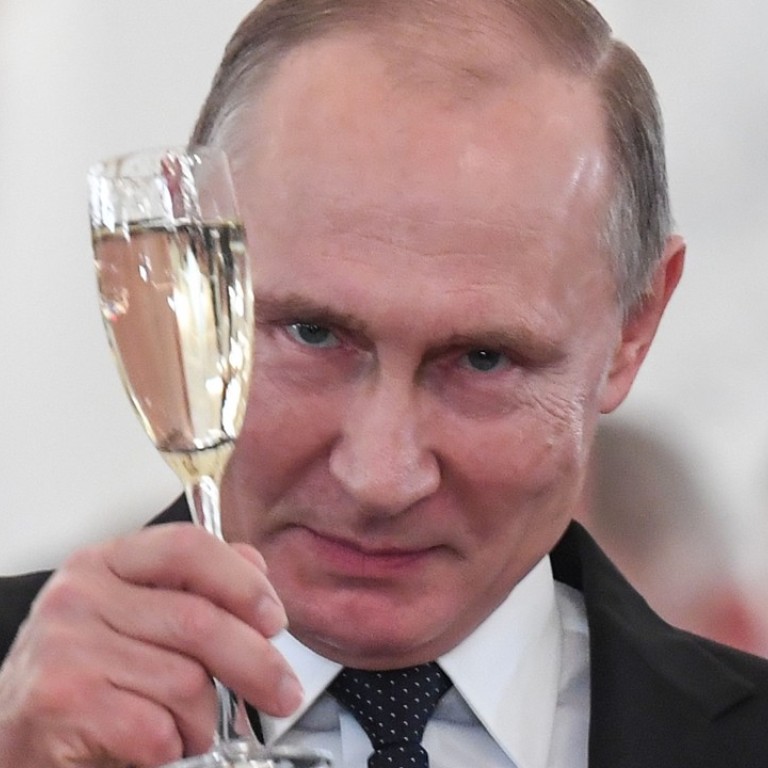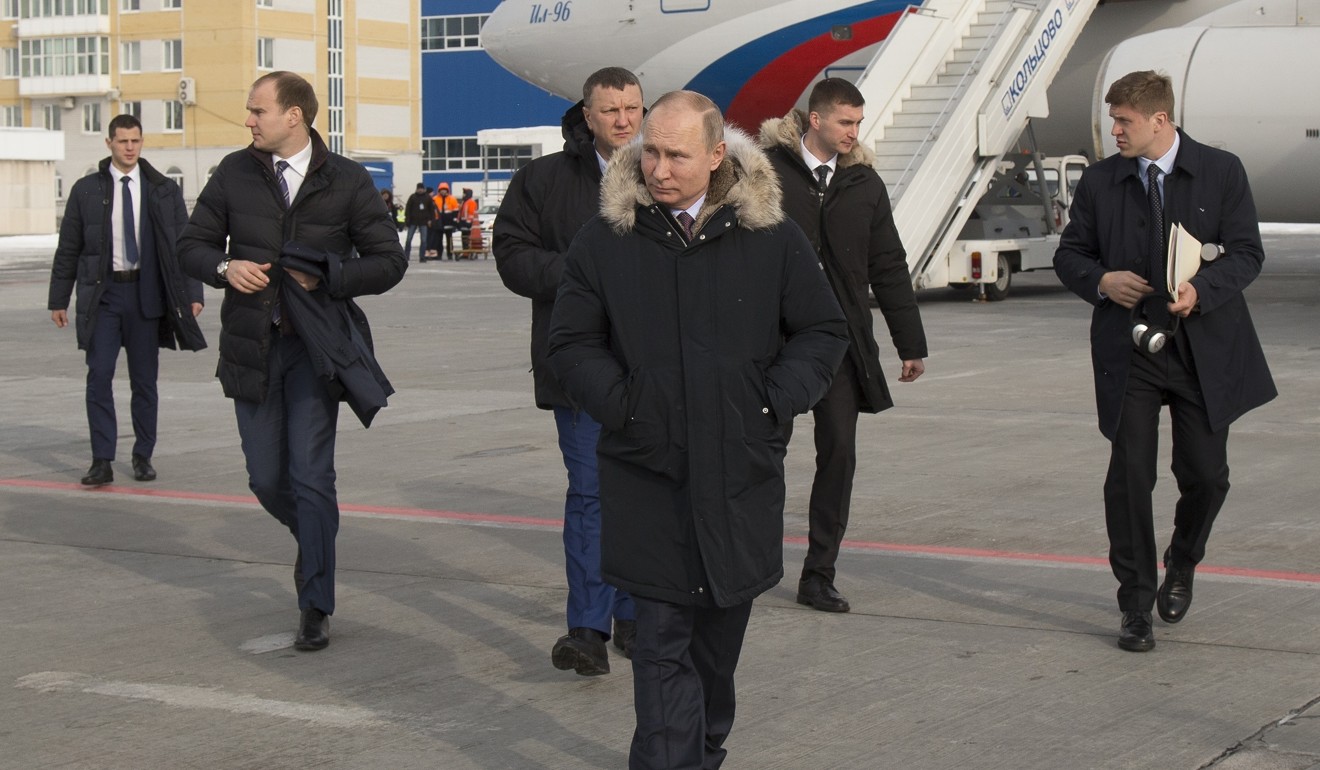
Putin set to win re-election in a landslide vote despite almost no effort campaigning, poll shows
Popularity still strong despite Putin not producing an official manifesto, refusing to join in televised debates and recycling campaign video material
Vladimir Putin will return to the Kremlin with 69 per cent of the vote, according to the last survey by state pollsters before the Russian presidential election on Sunday.
The figure has dipped from highs of 77 per cent soon after Putin announced his candidacy in December, but there is little doubt he will win in a landslide even after a lacklustre campaign.
“There are several reasons why Putin has such a high rating. There are of course his personal qualities. He is the most trusted [candidate],” head of state pollster VTsIOM Valeriy Fyodorov told a press conference on Monday.
Around 90 per cent of people who were aware of Putin’s manifesto said they supported it, Fyodorov said.
Putin has not produced an official manifesto but he discussed poverty and environmental issues during a state of the nation address this month.
He has refused to take part in televised debates with his seven challengers and his campaign videos have relied solely on archive material.

Pavel Grudinin, the millionaire Communist Party candidate, is expected to come in second with around 7 or 8 per cent of the vote, according to VTsIOM figures.
Ultra-nationalist Vladimir Zhirinovsky is projected to get around 5 per cent, while former reality television show host Ksenia Sobchak is likely to take between 1 and 2 per cent.
The other three candidates are predicted to trail with 1 per cent or less.
Between 63 and 67 per cent of eligible voters will take part in the election, VTsIOM said, with turnout becoming a key focus in the absence of suspense over the outcome.
Despite campaign promises when Putin returned to the Kremlin in 2012 after four years as prime minister, his last term has seen a drop in living standards and increasing isolation on the world stage.
But Putin’s approval ratings have remained sky-high, boosted by a slavish domestic media and foreign interventions including the annexation of Crimea from Ukraine.
He is also widely seen as the man who brought stability after the political and economic chaos of the 1990s, an image he has sought to reinforce.

.png?itok=arIb17P0)